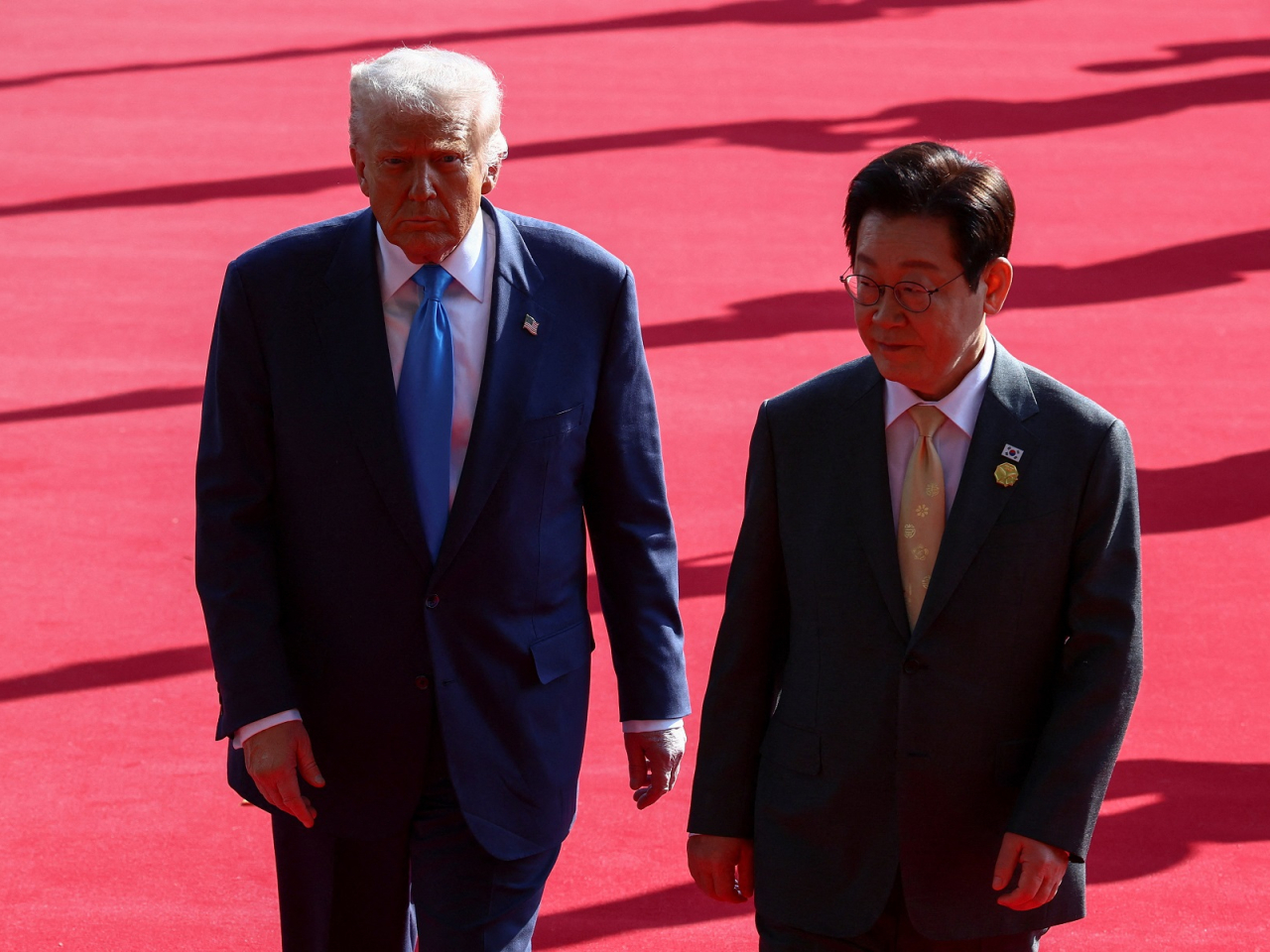US President Donald Trump on Thursday said he has given South Korea approval to build a nuclear-powered submarine, a dramatic move that would admit Seoul to a small club of nations possessing such vessels.
The submarine will be built in a Philadelphia shipyard, where South Korean firms have increased investment, Trump wrote on social media.
The US president, who has been meeting with South Korean President Lee Jae-myung and other regional leaders during his visit, also said Seoul had agreed to buy vast quantities of US oil and gas.
Trump and Lee finalised details of a fraught trade deal at a summit in South Korea on Wednesday.
Lee had also been seeking US permission for South Korea to reprocess nuclear fuel.
Seoul is barred from reprocessing without US consent, under a pact between the countries.
"I have given them approval to build a Nuclear Powered Submarine, rather than the old fashioned, and far less nimble, diesel powered Submarines that they have now," Trump wrote on his Truth Social platform on Thursday.
South Korea's Industry Ministry said its officials had not been involved in any detailed discussions about building the submarines in Philadelphia.
While South Korea has a sophisticated shipbuilding industry, Trump did not spell out where the propulsion technology would come from for a nuclear-powered submarine, which only a handful of countries currently possess.
The US has been working with Australia and Britain on a project for Australia to acquire nuclear-powered submarines involving technology transfers from the United States.
The US has so far only shared that technology with Britain, back in the 1950s.
Lee said when he met Trump on Wednesday that allowing South Korea to build several nuclear-powered submarines equipped with conventional weapons would significantly reduce the burden on the US military.
He also asked for Trump's support to make substantial progress on South Korea being allowed to reprocess spent nuclear fuel, or on uranium enrichment, something currently not allowed under the nuclear agreement between the two countries, even though South Korea possesses nuclear reactors to generate power. (Reuters)





